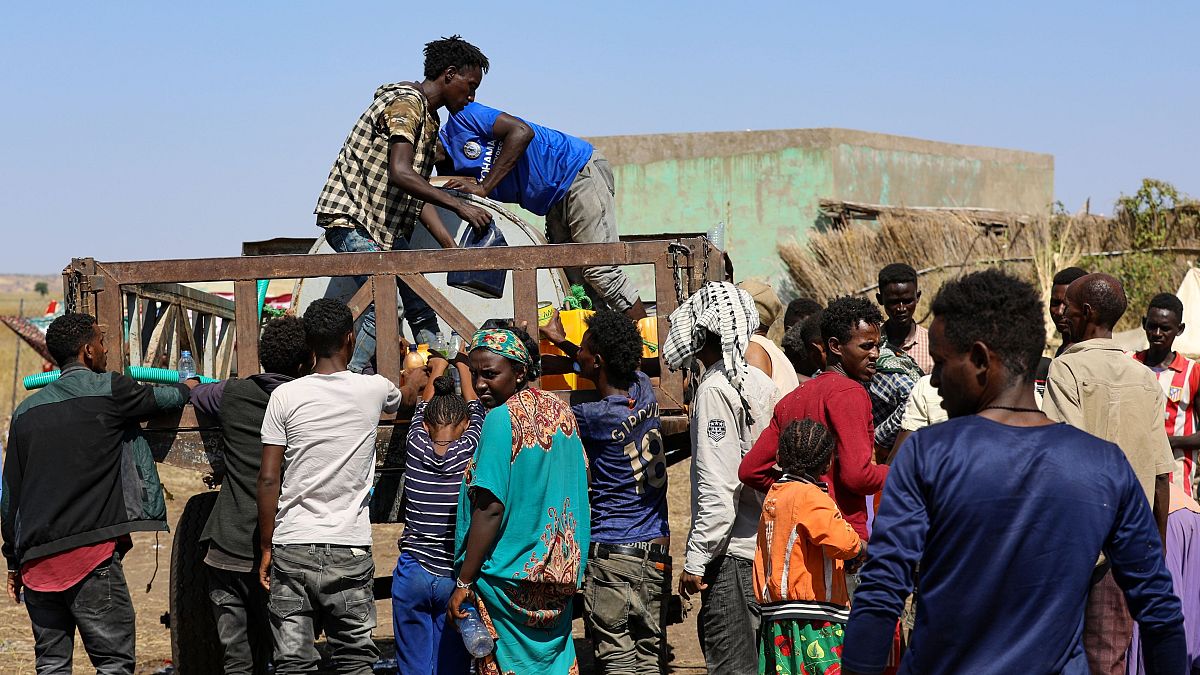Many civilians, possibly hundreds, were stabbed to death in a town in Ethiopia’s Tigray region, Amnesty International said.
Many civilians, possibly hundreds, were stabbed to death in a town in Ethiopia’s Tigray region Amnesty International has said.
A federal military operation in the area has forced thousands to flee to neighbouring Sudan.
Amnesty said its Crisis Evidence Lab has examined photographs and videos of bodies seen across the town, geolocating the images to Mai-Kadra in the South West Zone of Ethiopia’s Tigray Region.
This is the first time that a large number of civilian deaths have been reported since the conflict between the government of Prime Minister Abiy Ahmed and the Tigray People's Liberation Front (TPLF), the ruling party in the breakaway northern region of the country, began on 4 November.
Abiy Ahmed says he launched the intervention to restore "legitimate institutions" in Tigray, after months of mistrust of the central government and an attack by TPLF forces on two Ethiopian army bases, which he denies.
Amnesty said, “scores, likely hundreds” of people were killed on the night of 9 November.
“We have confirmed the massacre of a very large number of civilians, who appear to have been day labourers in no way involved in the ongoing military offensive, said Deprose Muchena, Amnesty International’s Director for East and Southern Africa.
“This is a horrific tragedy whose true extent only time will tell as communication in Tigray remains shut down.
Witnesses told the organisation that dead bodies and injured survivors were found all over the town on the morning of 10 November and that the bodies had wounds that look to have been inflicted by weapons such as knives and machetes.
The NGO said it was not yet able to confirm who was responsible for the killings.
Witnesses claimed forces loyal to the Tigray People’s Liberation Front (TPLF) were responsible for the mass killings, apparently after a defeat by federal forces.
Earlier on Thursday, Abiy Ahmed, who won the 2019 Nobel Peace Prize, said the army had "liberated" the area of West Tigray, one of six administrative areas in the region, in addition to the regional "capital" Mekele in the east.
The blackout on communications in the region and restrictions on the movement of journalists make it difficult to independently verify information.
While the extent of the fighting and its outcome are not yet known, the Ethiopian army said it has carried out several air raids on military targets, including "weapons and fuel depots".
The official Tigrayan television said that 10,000 Ethiopian army soldiers were captured and that cities that were "in the hands" of the government were taken over.
The United Nations on Thursday called on Ethiopian and regional authorities for full humanitarian access to the Tigray region and for security for civilians fleeing the fighting.
Nearly 11,000 Ethiopians have crossed the border into Sudan to flee the fighting, according to the Sudanese refugee agency.
According to an AFP photographer in the Sudanese region of Hamdait, which borders Ethiopia, the refugees, mostly women, youths and children, arrive by bicycle, rickshaw - a motorised or non-motorised tricycle - but mostly on foot, and seem totally exhausted.
Hundreds of people were still waiting on the Ethiopian side of the border to be able to cross the river separating the two countries.
Faced with this influx, the Sudanese authorities on Thursday reopened a camp that hosted in the 1980s those fleeing famine in Ethiopia.
